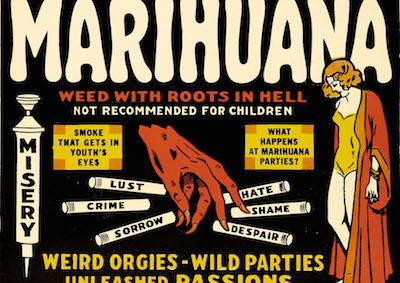The Production Code that went into effect in the mid-1930s was intended to purge the screen of Hollywood’s more salacious predilections. While the big studios complied, a crop of independent producers sprung up to continue giving audiences what they really wanted—as quickly and cheaply as they could. Producers like J.D. Kendis, Kroger Babb and Dwain Esper cranked out lurid tales of sexual license, drug use and violent crime to be exhibited, with commensurate carnivalesque ballyhoo, barnstorm-style at independent theaters around the country. Billed as educational films—invariably they open with scrolling statements of wholesome intent, dubbed in the trade, the “square up”—they purported to expose and inform the truth and consequences of society’s pressing ills all the while seeking to shock and titillate with every frame. Generally devoid of anything approaching production value, their cardboard worlds, teeming with shadowy purveyors who lead innocents astray, hold their own kind of fascination, like the country’s id run wild. This weekend series presents highlights and lowlights from the classic era of the exploitation film, all in new restorations by Kino Lorber in association with Something Weird and the Library of Congress.
Watch the series trailer:






 Mobile Navigation
Mobile Navigation




